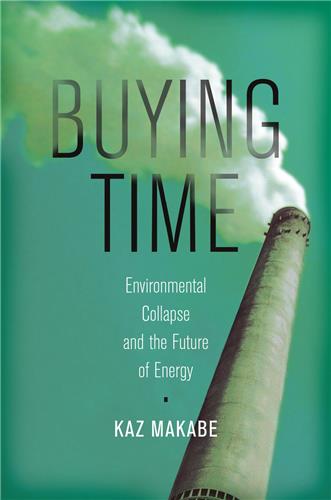A lucid, thoughtful analysis of the future of energy systems.
WE KNOW, from repeated failures to predict and prevent catastrophes ranging from the Great Tohoku Earthquake to the global financial crisis of 2008, that complex adaptive systems, such as those found in nature or in economies, are actually very hard to predict, much less influence. Today, we face environmental degradation caused in large part by the use of fossil fuels, ever-declining efficiencies in extracting them, a pace of development for renewable energy insufficient for replacement of the fossil fuels we are burning through, and population growth that is likely to add two billion people globally by 2045. Despite partial recovery since the financial crisis of 2008, growth remains sluggish, and large budget deficits persist across much of the developed world. Meanwhile, developing states face their own challenges, stemming from unbalanced growth. Against this backdrop, and in light of the urgent need to pay closer heed to our environment, the last thing the world needs is an energy crisis triggered not merely by recurrent scares over supply, but by more lasting structural changes in our ability to use fossil fuels with reckless abandon. Buying Time applies lessons learned the hard way from the global economic crisis of the past decade, to offer an overview of the state of the environment and our energy future. Grounded in subtle thinking about complex systems, including the economy, energy, and the environment, this book underscores the connections linking them all. Kaz Makabe is a veteran financial systems expert who lived through the Fukushima Daiichi nuclear disaster. He nevertheless concludes that nuclear energy is the bridge than can help us cross over the abyss we face.


“A lucid, thoughtful analysis of the future of energy systems.”
Publishers Weekly
A lucid, thoughtful analysis of the future of energy systems.
This excellent book offers relevant and significant information. . . . Highly recommended.
Nuclear energy, with its relatively small footprint, has demonstrated its prowess as a source of power far cleaner and safer than all other forms of energy. I highly recommend Makabe’s clear, strong presentation of the choices that lie ahead in regard to energy resources for the growing world population.
In the footsteps of Joseph Tainter and Jared Diamond, Kaz Makabe paints an unsettling picture of our energy future-and the future of our technological society. With powerful anecdotes and offhand erudition, Makabe ranges from Elizabethan England to the Fukushima disaster to show that two centuries of exponential growth powered by fossil fuels have brought us to the brink of an energy cliff-and that renewable energy technologies such as wind and solar power will not be enough to rescue us. The solution, he argues, lies with advanced forms of nuclear power, including reactors powered by the alternative nuclear fuel thorium. The question is whether humanity can muster the will and the adaptive power to buy us enough time to avert climate catastrophe.
KAZ MAKABE was born in Japan. He moved to New York at the age of six. He attended Columbia University, and has worked at Goldman Sachs and JPMorgan Chase. He lives in Tokyo and travels frequently.

Founded in 1971, Brandeis University Press is a nonprofit publisher dedicated to publishing innovative, high-quality books for a general audience, as well as scholarship that advances knowledge and promotes dialogue in the humanities, arts, and social sciences around the world.
© Copyright 2024, Brandeis University Press
Brandeis University Press
Goldfarb Library 69-235, MS 046
Brandeis University
415 South Street
Waltham, MA 02453
(781) 736-4547
pressinfo@brandeis.edu

Stay up to date with the newest titles and promotions from Brandeis University Press—while saving 20% on your first purchase.